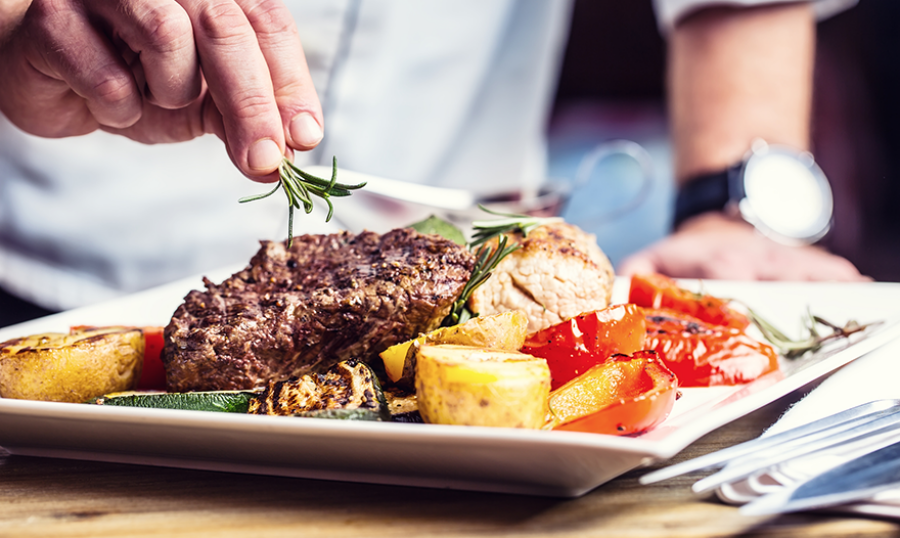
When it comes to food franchising, there are loads of different options and plenty of variety to suit every budget. In addition, it is quite possibly one of the most popular franchising models around. Food and beverages are, after all, an everyday necessity. Consumer expenditure on food, drink and catering rose by 0.7% in 2016 to an estimated £203 billion. In addition, the agri-food sector contributed £112 billon (6.4%) to the UK economy in 2016. Food franchises are therefore both recession and Brexit-proof. A career in the food industry could be the change you've been looking for.
“Food is a necessity and more and more people either have no time to cook at home or they see eating out as an affordable treat, so there are strong consumer trends supporting the decision to invest in a food franchise,” says Matteo Frigeri of Bella Italia. “Another element that makes it an obvious choice is that food, unlike retail and services, is positively affected by changes in technology.”
For decades, franchisees have been given the freedom and opportunity to take control of their own earnings while still working in a supportive franchise environment. The food franchising sector has evolved even further and right now there’s a very broad range of opportunities out there just waiting to be seized. These kinds of opportunities range from food vending businesses to juice bars and pizza restaurants.
Starting Off
The first thing to think about when choosing a food franchise is what you will be able to contribute to the business. You must consider the skills that you have and what you are good at doing, as well as what you would like to do. Food franchises, as a whole, will largely be consumer facing so if this is something that you are not comfortable with, then this might not be your best option.

Do you have the necessary funds to invest in a food business, and do you have contingency funds in case they're needed? Some businesses reach a level of success relatively quickly, while others can take a bit of time to get established. If you are very passionate about your business and are willing to invest the necessary time, funds and other necessary resources, it will improve your chance of success enormously.
Researching the Market
Researching the market is very important when it comes to choosing a food franchise. You may have settled on the fact that the food and drink industry suits your skills and ambitions, but you must then decide on the exact product that suits you best within this industry.
Some areas in the UK are saturated with coffee shops and sandwich shops but this doesn’t mean that there isn’t room for another one. In fact, some of the biggest names in franchising are continually expanding and are therefore always on the lookout for new franchisees. If working for a business with an established business model and customer base suits you, this could be an excellent option. Shakeaway and Papa John's are all currently looking for new recruits!
If you are not looking to join a big established brand, but want to compete, then it is vital to do your own research about what skills and experience are needed to succeed within the food industry. Cooking skills aren’t required but people skills and a strong business acumen are essential, according to Matteo Frigeri of Bella Italia.
Start your search today by researching food franchises from Franchise Direct.
Registering Your Business
You must register your business premises with your local authority and if you are looking to set up a new business premises, you should register it at least 28 days before opening.
If you use premises in more than one place, you need to register all of them.
You must also:
- Ensure your local authority always has up-to-date information about your premises.
- Tell your local authority when the nature of your business changes significantly.
What the Law Says
Your premises must include all of the rooms or buildings that you will use in your business.

General Requirements
- You must keep your premises clean.
- Avoid or minimise air-borne contamination (i.e. contamination carried in the air).
- Provide enough working space for you to carry out all tasks hygienically.
- Protect against the build-up of dirt, contact with toxic materials, shedding of particles into food and the presence of condensation or mould on surfaces.
- Enforce good food hygiene practices, including protection against contamination and, in particular, pest control.
- Provide, where necessary, suitable conditions for handling and storing food while keeping it at appropriate temperatures. Those temperatures should be monitored and, where necessary, recorded.
- Regardless of the franchise you’re looking at, in this sector you have to adhere to all applicable food hygiene laws, which can require training and certification.
The most important food hygiene regulations for your business are:
- Regulation (EC) No. 852/2004 on the hygiene of foodstuffs.
- The Food Hygiene (England) Regulations 2006 (as amended) (and equivalent regulations in Scotland, Wales and Northern Ireland).*
These set out the basic hygiene requirements for all aspects of your business, from your premises and facilities to the personal hygiene of your staff. One of the key requirements of the law is that you must be able to show what you do to make or sell food that is safe to eat and have this written down.
You must put in place food safety management procedures based on the principles of HACCP (Hazard Analysis and Critical Control Point). The HACCP plan keeps your food safe from biological, chemical and physical food safety hazards. To make a plan you must:
- Identify any hazards that must be avoided, removed or reduced.
- Identify the Critical Control Points (CCPs) - when you need to prevent, remove or reduce a hazard in your work process.
- Set limits for the CCPs.
- Ensure you monitor the CCPs.
- Put things right if there is a problem with a CCP.
- Put checks in place to make sure your plan is working.
Keep Records
In practice, this means that you must have procedures in place to manage food safety “hazards” in your business. You must write these procedures down, update them as needed and keep records that can be checked by your local authority.
You can develop your own procedures based on the principles of HACCP. Alternatively you can use a pack produced by the FSA or your local authority, or a food industry guide recognised by the FSA, to help you comply with the law.
Training for Food Handlers
Food businesses must make sure that staff handling food are supervise, instructed and/or trained in food hygiene in a way that is appropriate for the work they do. The person or people responsible for developing and maintaining the business’s food safety management procedures, based on the principles of HACCP, must have received adequate training to enable them to do this.
There is no legal requirement to attend a formal training course or get a qualification, although many businesses may want their staff to do so. The necessary skills could also be obtained in other ways, through on-the-job training, self-study or relevant prior experience. Packs produced by the FSA and other authorities can also help to train you and your staff.
UK food hygiene certificates don't have an expiry date. It is left to the discretion of the food business operator or environmental health officer to decide whether a refresher course is needed. This may be a result of changes to legislation or technological developments in food hygiene.

The franchisor will usually help you meeting these requirements. Dominic Richards of Bap says the company is constantly updating training material relating to food hygiene regulations. He states: “Our in house training has been tailor made to ensure Bap meets all current regulations. We also find it is better to liaise directly with local authorities as they have different areas to focus upon. Any 'persons in charge' whether a manager or team leader must have the relevant food hygiene training and all managers must attend courses on an annual basis. We would recommend that all franchisees follow the same guidelines to ensure best practice to maintain the brand standards.”
He adds: “We have so many controls in place to ensure food hygiene rules are followed and even improved upon, local authorities tend to be impressed by the paperwork and training programs.”
If you would like advice about obeying food hygiene law, get in touch with your local authority. If you run a small catering business, there are packs available to help you put in place food safety management procedures based on the principles of HACCP. These packs have been produced by the FSA.
There are a number of FSA publications that you might find helpful. These include:
- Starting up – your first steps to running a catering business food.gov.uk/starting-up
- Food safety and hygiene food.gov.uk/food-safety
You also need to ensure that – in addition to the franchise fee – you have sufficient working capital in place. The franchisor can offer a lot of reliable guidance in this area, but you should always try to talk to some existing franchisees who have recently set up in the same type of business. They will be able to give you a clear and unbiased sense of the challenges and opportunities that you need to be aware of when you purchase your food franchise. You can kick start your search for a food franchise here.
Trends in the Food Industry
Britain is mad for spiralisers and smoothies and this trend is set to continue as fast food restaurants go healthy. As diners become more aware of chemicals and additives in their food, fast food chains are adjusting their menus. Already, Papa John's have made moves to make their menus healthier and devoid of artificial ingredients and additives.
Statista estimate that in 2018 an average of 2.2 cups of coffee are consumed on a daily basis in the UK. This is excellent news for coffee franchises such as Triple Two Coffee, Coffee-Bikeand Really Awesome Coffee.
Snacks take centre stage. Nearly a quarter of all snack foods consumed last year were eaten at mealtimes, according to NPD group, with the trend expected to continue into 2016. One of the main reasons for this is the growing number of single-person households, since solo eaters are more likely to opt for snack foods for dinner. When making their selection, single diners prefer single-serve packages and are increasingly turning to healthy snacks, like fresh fruit, breakfast bars, and yogurt.
Food trends are always changing so why not set your own – with a food franchise!














